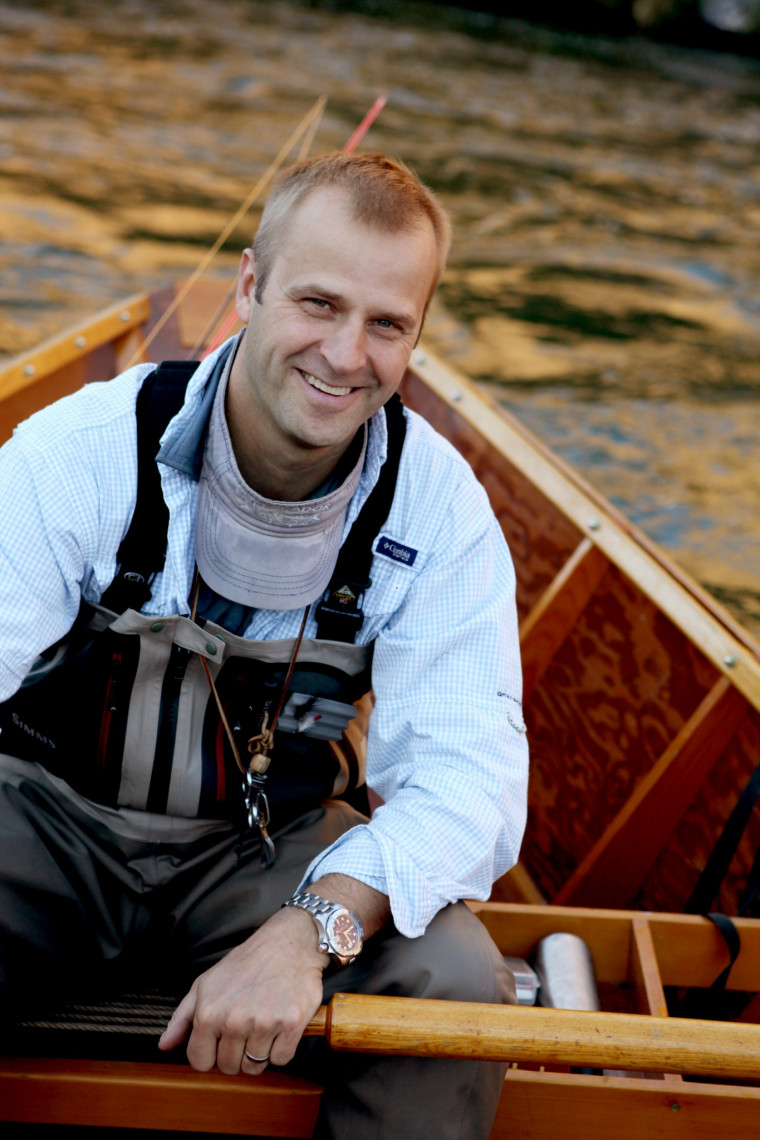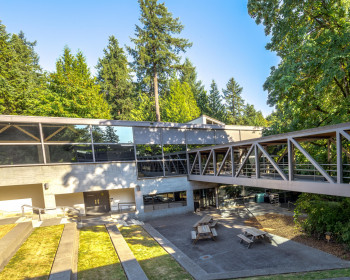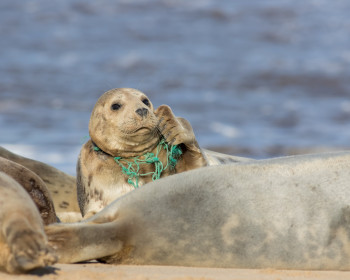Greenlight on Alum: Joe Whitworth, President of The Freshwater Trust
Open gallery

Joe Whitworth, President of The Freshwater Trust and Lewis & Clark Law school alum (JD 2000), recently published Quantified: Redefining Conservation for the Next Economy. This Greenlight on Alum interview focuses on the “quantified conservation” approach and the enduring influence on Joe of his Lewis & Clark law professors:
Q: What is “quantified conservation” and how is it different from other approaches to conservation issues. Why did you decide to write Quantified: Redefining Conservation for the Next Economy?
A: “Quantified conservation” boils down to a framework to ensure that every action taken in our economy translates into positive gains for our environment. The book distills a framework and tools that will enable such a world by leveraging best practices used by today’s most successful social sector organizations and entrepreneurial businesses.
My motivation for the book stems from the realization that we need to radically accelerate results on the ground in a world that is rapidly changing, and new tools—from remote sensing to cloud computing to data analytics to mobility—can enable us to see and act on information with a speed, a precision, and at a scale not seen before, but desperately needed.
Since 1970, world population has doubled. In the U.S., population has increased 55% and pesticide use has tripled. Dead zones across the globe have exploded from 30 to more than 500. Freshwater species have declined by half. The bottom line is that our world has changed fundamentally, and so too must environmental effort. Quantified shows a viable path to begin that change.
Q: Who is the target audience for the book?
A: Purposely, I wrote this book to create space for the next generation of doers. For readers older than me, I hope they will see the imperative for them to allow the change to happen. For younger readers, I want them to understand the opportunity to change the world ahead as an applied matter.
Q: How have you put “quantified conservation” into practice at The Freshwater Trust? Can you point to any successes from implementing this strategy?
A: “Quantified conservation” requires situational awareness (knowing where you really stand at any given time), outcomes (which are clear, significant and aggressive), innovation (new policies, methods, or tech to hit the outcomes), data & analytics (to track progress and predict improvements) and gain (to ensure we get our environment’s worth whenever we spend a dollar).
The distillation of the principles of “quantified conservation” certainly came out of my experience at The Freshwater Trust, but the book draws on examples the world over. From how Australia reloaded their entire water rights scheme to fit within a water budget to how Google can turn an agency’s decade-long mapmaking effort into something closer to real-time and how the capacity to X-ray nature will allow a more efficient allocation of public, philanthropic, and private dollars to secure the environmental gains we need on a timeline that matters.
Q: Can the principles of “quantified conservation” be applied in any environmental organization?
A: Yes, and I hope they do. I’m deeply convinced many need to if they expect to retain relevance and strength going forward. In fact, any social sector organization can put these principles to work. Having consulted to not-for-profit organizations around the country prior to law school, I am always interested in what makes a successful organization—I geek out on it.
One of my primary investigations in researching the book centered on how had my own organization continued to grow during the economic down times of 2008-2011 while so many others had not. I was surprised at what I found and the ability of the framework to scale up or down from an organization to a project to a campaign to country to a movement to who knows what. We did it intuitively, but any entity can use this framework to get better, stronger, faster—and make the difference that they intend.
Q: What skills do you draw on from your legal education to lead The Freshwater Trust, and to develop new approaches to water issues?
A: The truth is that I did not get my JD with the intention of practicing law. What I wanted was to be a high functioning utility player for a not-for-profit. Having been around the sector for years in a consulting capacity, I saw a clear need for significant improvement nearly across the board. In many ways, I approached my legal education as essentially a turbo-charged liberal arts degree that would help me rapidly understand critical factors across several disciplines. It enables me to ask 2-3 questions in any situation and know exactly what the score is and where the pinch points exist. Whether in policy, technology, negotiating, finance, or science settings, I use it every single day.
Q: What courses, professors, or experiences made the biggest impact on you during your time at Lewis & Clark law school?
A: The respect I have for our faculty is profound, and shared by all who come here; out of respect for space mine will not be my complete list. Mike Blumm showed me the value of immersing deeply into a problem. Dan Rohlf took me through the range of creative litigation and nuts & bolts around species protection with PEAC (now called Earthrise Law Center) and tying it to the field out in the Steens Mountains. My water law professor, Reed Benson, became a trusted colleague in his work running Waterwatch.
Some of the courses I did not anticipate liking, but loved, included Tax Law with “Downtown” Larry Brown, Business Associations with (now Dean) Jennifer Johnson —these I have drawn on in my professional life and in dealing with the organizational merger of Oregon Water Trust & Oregon Trout, founding the Council for Responsible Sport, and Program Related Investment decisions with foundations. Ironically, after struggling through Lydia Loren’s Law of the Internet (where copyright law was struggling with the speed of the internet), I now hold a software patent!
Q: What advice do you have for new attorneys who want to work in the environmental law field and make an impact on the important issues facing our planet?
A: The environmental sector is going to grow by orders of magnitude in this century—but not in the way it has grown in the past. Your job is to be able to absorb information and adapt with great speed. We will always need litigators and administrators to make sure that good rules get followed correctly, but times are changing, and even these will need a broader skill set that encompasses how business, tax, tech, and several other areas operate. We will need patent attorneys to work for the innovators like TESLA. We will need legal diligence for social impact investors as they deploy capital to sustainable product business plans. We will need contracts that tie to data drawn to ensure that we get the restoration public dollars pay for and that polluters more than offset their impacts. We will need policymakers than can incorporate real time data to make laws, rules, and management directives actually achieve the good things written on paper. And that’s just the starter list—it will be interesting to see how these new attorneys figure out what the world needs and write the rest themselves.
Q: Do you have any other comments or insights you’d like to share?
A: Pay attention to “design thinking” as it becomes more popularized. For this readership in particular, the great challenge before us is to find workable ways that bring the economy back into the physical bounds of the environment. Society itself is asking for this to happen when it creates demand for Toyota to make a Prius or Cheerios to be GMO-free or groundwater to be managed sustainably in California, and dozens of other examples. The future is already here; it’s just not evenly distributed. Our job is to evolve into what is needed next—and then do it all over again as conditions change. The good news is, we can.
Quantified is available through Island Press at https://islandpress.org/book/quantified, or http://www.amazon.com/Quantified-Redefining-Conservation-Next-Economy/dp/161091614X/ref=asap_bc?ie=UTF8
More Environmental, Natural Resources, & Energy Law Stories
Environmental, Natural Resources, and Energy Law is located in Wood Hall on the Law Campus.
MSC: 51
email elaw@lclark.edu
voice 503-768-6649
Environmental, Natural Resources, and Energy Law
Lewis & Clark Law School
10101 S. Terwilliger Boulevard MSC 51
Portland OR 97219

